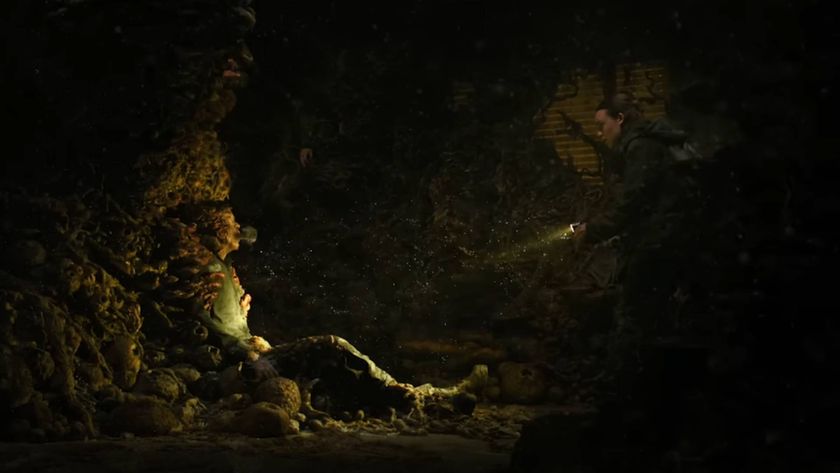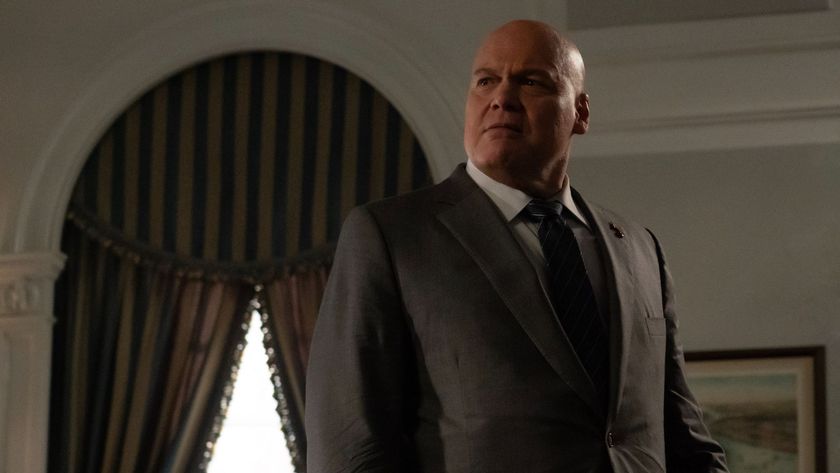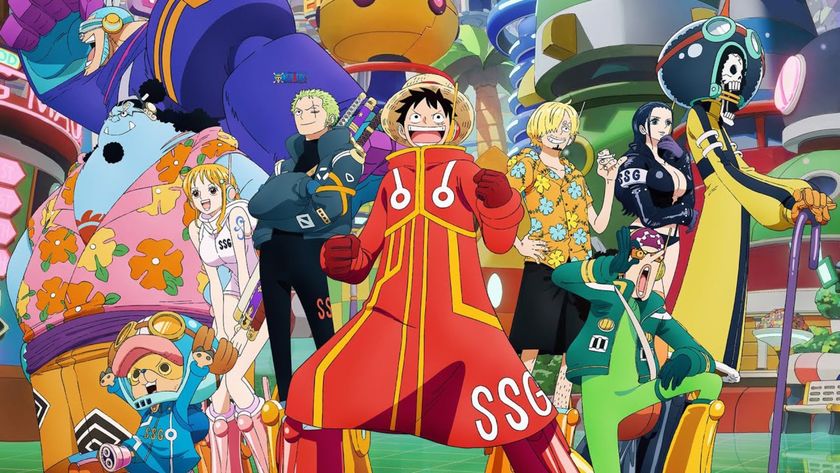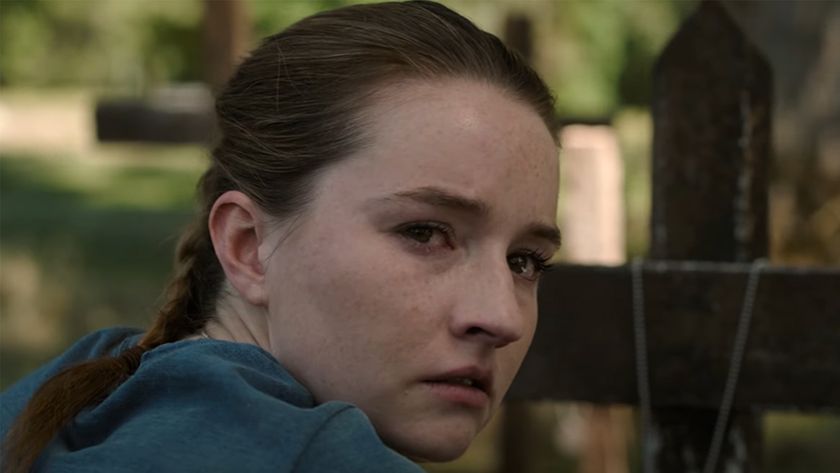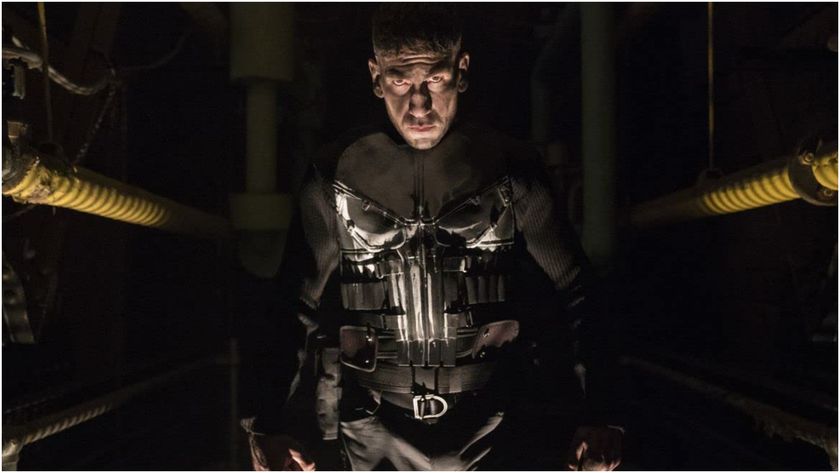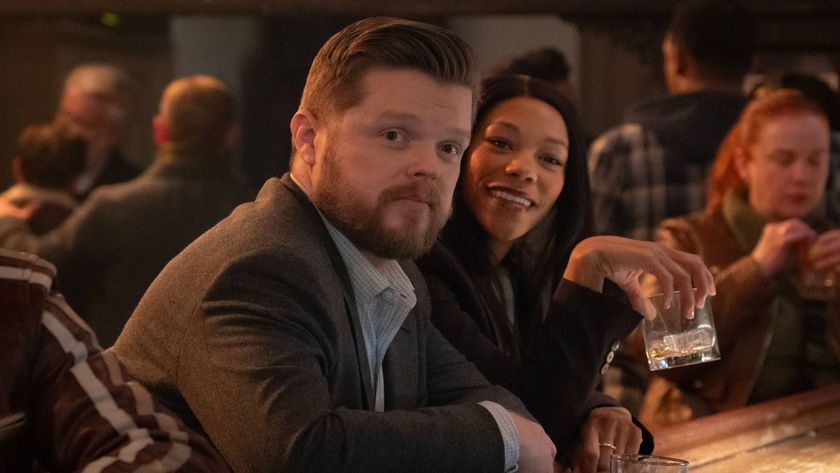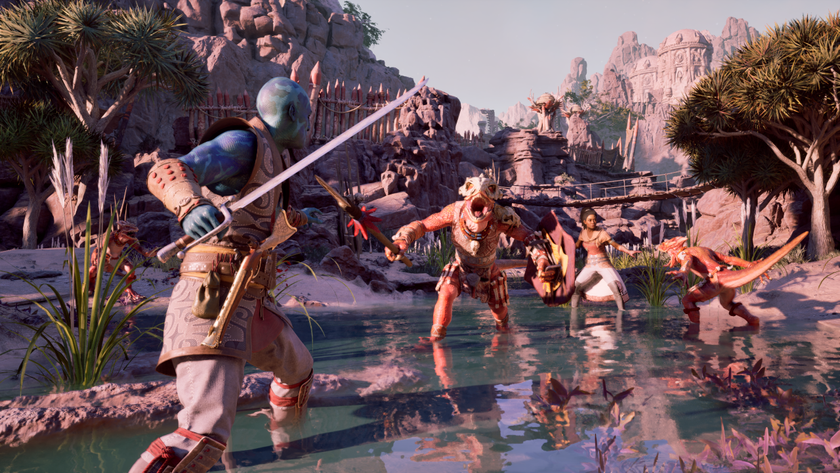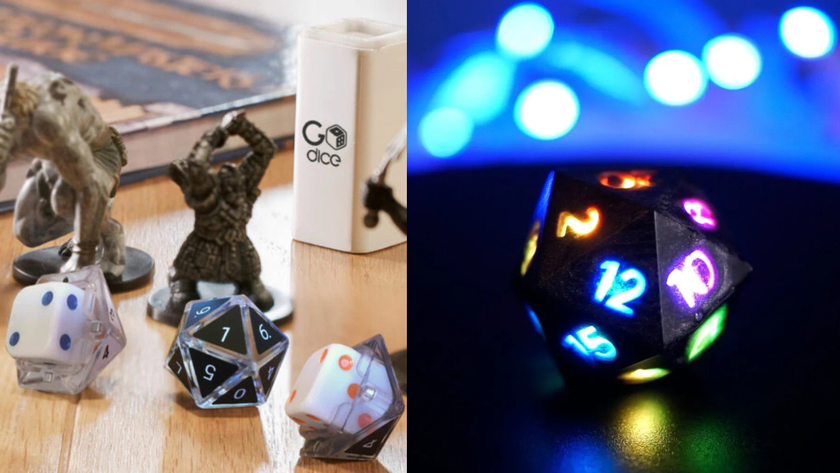In 2005 we saw comics writer Al Ewing tipped online as "this possible voice of 2000AD's future". Four years later, and having written some great stories, including tales Future Shocks, Zombo and Judge Dredd, he's also penned novels for book imprint Abaddon Books (such as Pax Britannia: El Sombra) and currently has his sights on America. His rising popularity got him a place in SFX's Hot 50, our definitive list of movers and shakers published in issue 185. Al took time out to speak with us about his work, and to provide encouragement for new writers:
SFX: What do you enjoy about the format of Tharg's Future Shocks and Terror Tales?
Ewing: "Lots of freedom! So long as you obey the 'five pages, twist ending' rule you can do just about anything. Plus, it gives the up-and-coming writer a massive burst of confidence to learn the skill of creating an entire world and destroying it in five pages - it teaches you brevity, density and most importantly, value for money. Comics are not cheap, and you owe your reader as much entertainment per dollar as humanly possible - Future Shocks are an excellent way of learning to provide massive amounts of information in a small space."
"If anyone comes up at me and says they want to be a comic writer, I always recommend starting small, with five pages or less. That way you get it finished, there's not much to rewrite so you can really polish it, you've more chances of getting it drawn and printed somewhere, editors are more likely to spare the time to read it... and it teaches you all kinds of valuable skills that will stop you boring the readers to tears with loads of unnecessary waffle later in your professional life. (Like I'm doing now, for example.)"
"If you want to write comics for a living, start with something that's got a good chance of existing, as opposed to your 600-page graphic novel about elves that'll never happen because you bit off more than you could possibly chew. Attempting the elf graphic novel right off the bat is only going to teach you how to lie to yourself and accept your own failure as inevitable - a two-page twist ending story for a small press anthology is going to teach you some actual skills and within six months you'll be holding it in your hand and noticing what you did wrong. The elves can wait."
SFX: How much reverence do you still have for classic characters like Dredd? Do you feel able to write whatever you like about them now?
Ewing: "A bit of both. I'm incredibly reverent of Dredd - but I'm a bit too reverent to let any of it leak onto the page, or the strip becomes a kind of hagiography, and that isn't the right tone for Dredd. That isn't the right tone for any character. I always hated it when the only way a writer could point out how great Superman was to have all the other characters talking about it like they'd just creamed themselves - it made poor old Supes seem like a colossal prick, and I'd cheer inside when some menace would wipe the smile off his overly handsome face, then groan when he triumphed. Which probably wasn't what the writer intended. I'm very conscious of getting the right tone for Dredd. It's important that I try and keep the right voice for the strip so the reader doesn't get that sinking feeling that everyone's out of character."
SFX: Your recent stand-alone Dredd story Cockroaches was excellent. What did you enjoy about that?
Sign up to the SFX Newsletter
Get sneak previews, exclusive competitions and details of special events each month!
Ewing: "I guess on the one hand it's a done-in-one, and they're always good value for money - you get the complete Dredd tale in six pages, and it had a beginning, a middle and an end. Ben Oliver's art was absolutely gorgeous, which obviously had a lot to do with it. There was a twist at the end which turned the whole story on its head, and it's always nice to fit one of those in... and finally I suppose continuity played a small role - there was a bit of an easter egg for the old hands, in that it mentioned the Apocalypse War and re-affirmed that, yes, that did happen and being a big war it's still a vital part of Dredd history rather than something long-since retconned away. So that made the older readers feel a bit better, I think. Although someone pointed out recently that I was using old continuity as a crutch, and that's not a million miles from the truth, so I'm backing off on putting in too many easter eggs for the time being. Although now I think of it, there's a big fat one planned for the Christmas episode..."
SFX: Tell us a bit about your experience of creating the popular Zombo. What's your secret?
Ewing: "My 'secret' - and it's an open one - is that I didn't create Zombo. If we're talking about who created what, Zombo is Henry Flint's baby: he came up with the character, and the basic plot skeleton of the first series, and then very graciously allowed me to hammer the whole box and dice into shape. What I did was give Zombo and the other characters a distinctive voice, provide the backstory of the fictional universe and various other things which earned me my little co-creator badge. Make no mistake, though, the 'concept credit' will always go to Henry if I have anything to do with it. (He told me he doesn't want a 'concept credit' on the next series - I'm looking forward to blazing rows between me and Henry in the future over who created the character: 'It was YOU!' 'No, YOU did most of the work! Take that credit away from me, you filthy bastard!' 'He's lying, officer! It was him!')"
"The secret to everything I write, and the one thing I always make sure of, is tone - I keep coming back to this, but it's the most important thing a writer can do. You've got to have the right voice, both in the narration and especially in the dialogue. You can tell so much about a character by the rhythm of the dialogue, and that's something I try and utilise, rather than having everybody talk in some standardised comics coolspeak that has everybody talking a little bit like an idealised version of the writer. If you get the tone right, and if the artist picks his own tone to harmonise with yours, you can do just about anything."
SFX: What were your early influences?
Ewing: "I started off reading Buster, but when 2000AD got in the house when I was nine it kick-started a revolution. That was just at the tail-end of 2000AD's 'Golden Age', before the 'Silver Age' where people like Morrison and Milligan were coming in - before Zenith, Sooner or Later, Bad Company, all these strips that, at the time, seemed to be incredibly sophisticated and wild. I mean, Sooner Or Later! I remember really falling for that - a single page of pure genius every week. Plus a load of Titan reprints - the first book of ABC Warriors, and the introduction of The Mess in particular, remains the ur-text, the primal repository of thrill-power as I understand it."
"Marvel and DC at the time were still reeling with the British Invasion, and over the next few years you got loads of amazing Alan Moore Swamp Thing; and I remember Watchmen being smuggled into the house and pored over for hours; and Morrison's Doom Patrol; and eventually Flex Mentallo, which I still maintain is the best superhero comic of all time, though Seaguy runs it close. Meanwhile, Marvel under Shooter was an endless panoply of comics that were occasionally pure genius and never less than solid. Even New Universe has some gold in it. Of course the rot set in with the introduction of Cable and after that I was pretty much a DC man, keeping up with the good-natured 'super-soap' that Superman had become, although I continued to buy my beloved Hulk - though increasingly it switched between personalities faster than the title character - until Peter David left, and a little beyond. Back in the UK, I got into Oink and Toxic... The Driver remains an influence, and one of the greatest comics of all time. And I was getting into the back-issue bins, discovering Jack Kirby's writing, puzzling over the jazz poetry of the Fourth World, Silver Star, Captain Victory, 2001, digging into the ur-Future Shocks of Will Eisner's Spirit, eight pagers that can still teach everything a writer needs to know about economy, density and all the other unfashionable things that need to come back..."
SFX: So what excites you most about developments in comics right now?
Ewing: "I feel we're moving back to the meat and potatoes - solid stories, well told on the one hand, wild invention and craziness on the other. Marvel are doing wonderful things with their Adventures line, which has to be the best-written and most unassuming imprint in years and the most consistently good comics you can find. DC are taking risks with Batman and it's paying off in spades - if you're not watching Batman: The Brave And The Bold, you're missing the best telly since The Wire."
SFX: Here's a tricky one. What's your long term ambition - where would you like to be as a writer in the future?
Ewing: "In two years time, I'd like to be where I am now only more so. By then, cross fingers and knock wood, I should have made a foray into American comics, so the yanks will finally have some idea what to think of me, and I should also have got my first creator-owned, royalty-getting novel into some sort of shape. (And likely a couple more for Abaddon in between.) If 2000AD is still kicking - and I don't see why it wouldn't be - I'd certainly still like to be working for them. I've got a lot more Zombo in me, and I'd like to do another long-running series for them as well, but we'll see what happens."
"Long-term ambition... I'd like to be alive, still working and not imprisoned for crimes against morality. Things are getting sticky right now, if you're watching the signs, and they're likely to get stickier - some hastily-constructed new morals law courtesy of the legislation-happy psychopaths at New Labour, maybe - that'd see me getting three years for corrupting the youth. Oh, you may laugh, but let's see if you're still laughing when they drag you off to the kiddy-fiddler wing for having a copy of Lost Girls. When the other inmates flush your genitals down the toilet, you'll wish you'd bought that bootleg Dark Knight DVD at the con instead."
"Much more likely, though, is the Daily Mail suddenly catching wind of the rising tide in penny dreadfuls, blood and thunders, shilling shockers, tits and innards and what-have-you that comics today are all about. 'BAN THIS SICK FILTH' screams the headline, and the tutting herds are only too happy to comply once they get a look at that double-page spread in Zombo episode two. It'll be me, Geoff Johns, Robert Kirkman and anybody else who likes the odd entrail flying across the page, all taking turns in the guillotine. And Christ help you if you ever drew any naked bits! Ian Gibson will be first into the thresher, then poor old Richard Elson and Simon Davis, the tadgers they so wickedly drew into the weekly prog nail-gunned to their faces. It'll be a bloodbath! A merciless slaughter worthy of one of my own scripts!"
"Oh, I'm just laughing to hide the tears. But let's face it, it's going to happen. It's going to happen TO YOU. Don't say I didn't warn you."
SFX: Er… thanks Al!
You can follow Al on Twitter here . Find out more about 2000 AD at the official site , and read more about Abaddon Books here . The latest issue of SFX with the full Hot 50 list is on sale now.
SFX Magazine is the world's number one sci-fi, fantasy, and horror magazine published by Future PLC. Established in 1995, SFX Magazine prides itself on writing for its fans, welcoming geeks, collectors, and aficionados into its readership for over 25 years. Covering films, TV shows, books, comics, games, merch, and more, SFX Magazine is published every month. If you love it, chances are we do too and you'll find it in SFX.
